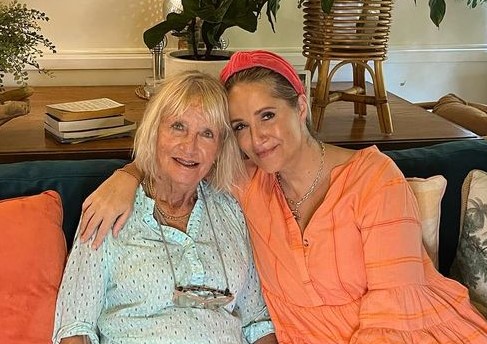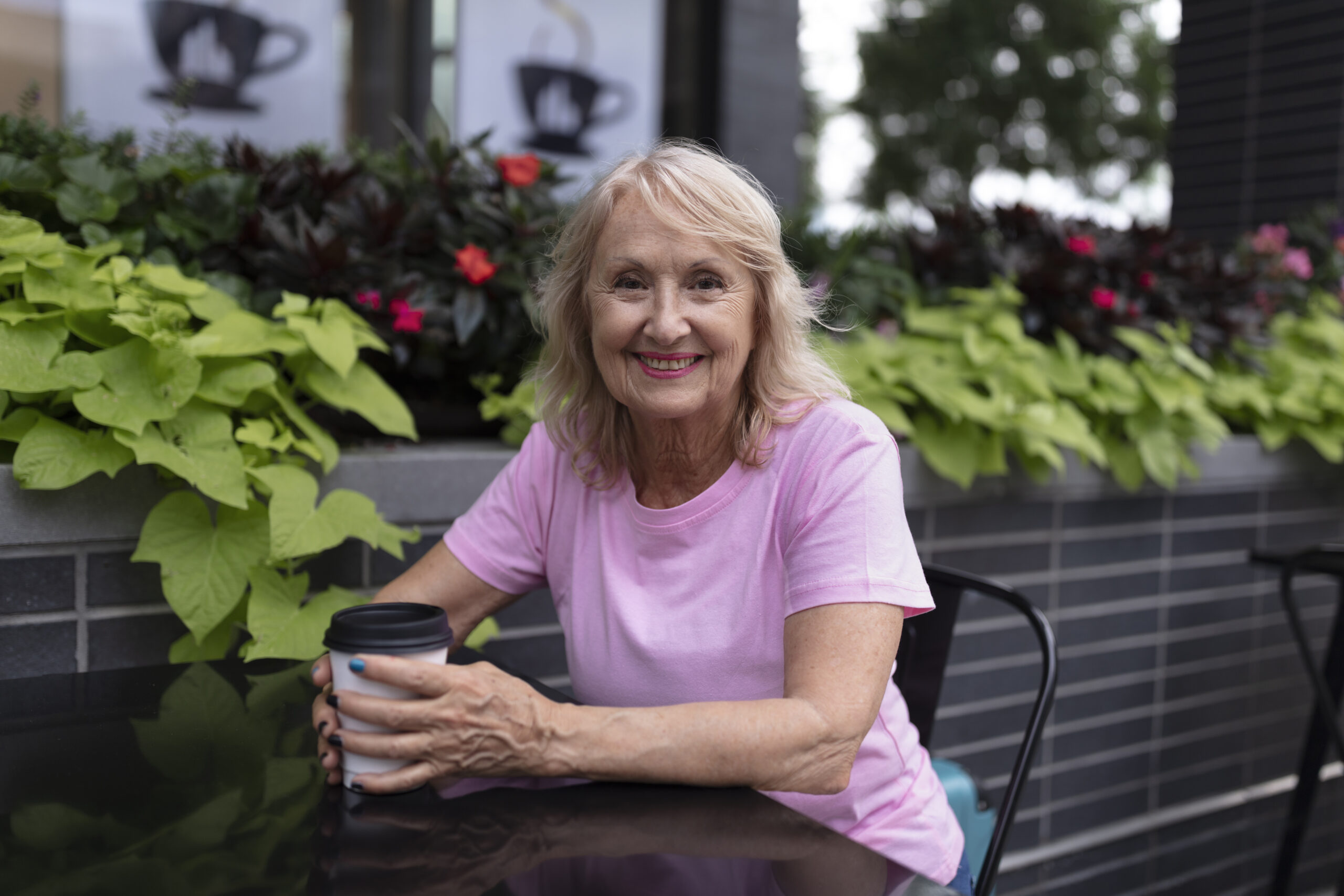How to calculate Aged Care Fees?
Fees and charges related to Residential Aged Care and Home Care change each quarter.
To make your decision easy, our specialists provide fast, free and independent service by giving you customised facility options in your area and suggest how to calculate aged care fees.
Please click here to receive a call from Aged Care Decisions specialists.
Let’s understand aged care before explaining cost.
Types of aged care in Australia
Australia has three main types of aged care services.
- Residential Aged Care Facility
- Short-term (Respite)
- Home care
We provide transparent reviews where you can compare and read reviews of all residential properties before you decide.
The amount you will pay for aged care is affected by your level of income and liabilities, and the value of property or other assets you own in your name.
The Australian Government’s Schedule of Fees and Charges for Residential and Home Care is updated quarterly.
What are the first steps in finding Aged Care?
- ACAT Assessment from My Aged Care
- Income and Asset test form Centrelink
- Calculating your fees and charges
- Finding provider that suits your needs.
How much does aged care cost in Australia?
The amount you will pay for aged care is affected by your level of income and liabilities, and the value of property or other assets you own in your name.
The Australian Government’s Schedule of Fees and Charges for Residential and Home Care is updated quarterly.
Income free area – Home care and Residential care
The table below outlines how much an individual can earn per year before they must contribute to fees and charges for residential aged care or home care.
| Income free area for: | Rate |
| Single person | $32,819.80 |
| Couple, Illness separated (single rate) | $32,195.80 |
|
Couple, Living together (single rate) – relevant to home care only – |
$25,420,20 |
If an individual earns less than these amounts over the course of a year, their income is excluded from the income test component of the residential aged care means test and the income test for in-home care. This means they will only pay the basic daily care fee for their home care or residential aged care.
Fees and charges for Residential aged care (nursing homes)
In Australia, fees and charges in residential aged care are broken down into four areas:
- Basic Daily Fee
- Means tested care fee.
- Accommodation Payment
- Extra service fees
Basic Daily Fee
This is a standard fee that everyone pays for living costs such as meals, cleaning, laundry, and facilities management. The basic daily care fee is currently $60.86 per day, which equates to 85 per cent of the standard full aged pension. This fee can be directly transferred from your pension.
| Maximum Basic daily fee | Rate |
| Residential aged care | $61.96 |
| Additional costs for people who live in remote areas | Residents in designated remote areas may be asked to pay an additional $1.06 per day. |
Means tested fee:
This is a fee that some people pay for their personal and clinical care, such as nursing, medication, and therapy. It is based on an income and asset assessment that determines how much the person can afford to contribute to their care costs. The Australian Government pays the rest of the care costs.
The means tested fee also has yearly and lifetime caps. Once you’ve reached those caps, you won’t be asked to pay a means tested fee for either the rest of the year or the rest of your life. Means tested fees are determined by an assessment coordinated by Centrelink or the Department of Veteran Affairs.
The means tested care fee is calculated based on:
- Marital status
- Home ownership status
- Who is living in the home, e.g., a partner, carer, or a close relative?
- Annual income
- Total financial assets
- Superannuation
- Debts or loans
Means tested care fees are capped.
The maximum amount you will pay for residential aged care costs in Australia is:
| Means tested care fee caps | Rate |
| Annual cap | $33,309.29 |
| Lifetime cap | $79,942.44 |
Residential care means test – Asset thresholds and home exemption cap.
After your income exceeds the lowest threshold as outlined below, there are ‘stages’ of income that determine how much you will be asked to contribute for residential aged care:
| Asset threshold | Rate |
| Asset-free threshold | $59,500 |
| First asset threshold | $201,231.20 |
| Second asset threshold | $484,693.60 |
| Home exemption cap (applies separately to both members of a couple). The net value of the home above this amount is excluded from the value of the resident’s assets. | $201,231.20 |
You can use the My Aged Care Fee Estimator to figure out how much you will pay in means tested fees for residential aged care.
Accommodation Fees:
The cost of a room in a residential aged care facility can be paid via a Refundable Accommodation Deposit (RAD), a Daily Accommodation Payment (DAP), or a combination of the two.
Refundable Accommodation Deposit (RAD):
The average RAD in Australia is about $470,000 but prices can vary greatly depending on location and facility. The RAD is often an ‘advertised price’ and is negotiated between the resident and the aged care facility. Not everyone will have to pay a RAD to enter residential aged care, as this payment is means tested against the assets and income of an individual new resident.
A resident with annual income over $79,942.44 and more than $201,231.20 in assets will be asked to pay the full RAD for their accommodation. If a resident has income below $32,819.80.00 and assets below $58,500, the Australian Government will pay the RAD for their accommodation.
Here is some more information about Refundable Accommodation Deposits and how they can be organised and paid: Rad in Aged Care | Rad Payment Aged Care | Aged Care Decisions
Daily Accommodation Payment
If your income and assets are above the threshold for government support, but you cannot, or do not wish to pay the RAD applicable to your chosen aged care facility, you can choose to instead pay a Daily Accommodation Payment (DAP).
The Daily Accommodation Payment covers the cost of your room that you have not paid up-front as a RAD. The DAP is paid periodically (usually fortnightly or monthly) and is not refundable.
The DAP is calculated using the amount of the RAD for your chosen room x the Maximum Permissible Interest Rate (MPIR) set by the Australian Government, divided by 365 days.
The current MPIR is 8.34%. As an example, the Daily Accommodation Payment, based on a room with a Refundable Accommodation Payment of $500,000, would be:
$500,000 RAD x 8.34% MPIR divided by 365 days = $114.38.
The DAP is calculated using the MPIR current on the day the room price was agreed. Your Daily Accommodation Payment does not rise along with the Maximum Permissible Interest Rate unless you move to a different facility or enter a different Accommodation Agreement.
You can choose to pay for your room using a combination of a RAD and DAP.
Thresholds for refundable deposits and daily payments
| Threshold | Rate |
|
Minimum permissible asset level
|
$59,500 |
|
Maximum refundable accommodation deposit
|
$550,000 |
Extra Service fees:
This is an optional fee that some people pay for a higher standard of accommodation or additional services that are not covered by the basic daily fee or the means tested care fee. These services may include things like a larger room, a private ensuite, cable TV, or special meals. The extra service fee is agreed between the person and the provider and varies depending on the provider and the services offered.
Two case studies of how residential aged care fees are calculated.
Here are two case studies that help explain how residential aged care fees are calculated:
Meet Mary:
Mary is a 75-year-old widow who has been living alone in her own home. She has dementia and needs assistance with daily activities such as dressing, bathing, and eating. She has been assessed by an Aged Care Assessment Team (ACAT) as eligible for residential aged care. She has a total income of $30,000 per year from her age pension and superannuation, and a total asset value of $500,000 from her home and personal belongings.
Mary decides to move into a residential aged care facility that charges an accommodation payment of $400,000 as a refundable accommodation deposit (RAD), or $44.44 per day as a daily accommodation payment (DAP), or a combination of both. She also chooses to receive extra services such as a private room with an ensuite, cable TV, and special meals, which cost an extra service fee of $20 per day.
Based on her income and asset assessment, Mary is required to pay the following fees for her residential aged care:
Basic daily fee: This is a standard fee that everyone pays for living costs such as meals, cleaning, laundry, and facilities management. It is not means tested and it is set at 85% of the single basic Aged Pension daily payment., currently $61.96 per day.
Means tested care fee: Based on her income and asset assessment, Mary’s means tested care fee is $15 per day.
Accommodation payment: Based on her income and asset assessment, Mary’s maximum accommodation payment is $400,000 as a RAD or $44.44 per day as a DAP. She can choose to pay this fee in any way she prefers, such as paying the full RAD upfront, paying the full DAP monthly, or paying a partial RAD and a partial DAP.
Extra service fee: This is an optional fee that some people pay for a higher standard of accommodation or additional services that are not covered by the basic daily fee or the
Therefore, Mary’s total fees for her residential aged care are:
- Basic daily fee: $61.96 per day
- Means tested care fee: $15 per day.
- Accommodation payment: $400,000 as a RAD or $44.44 per day as a DAP or a combination of both
- Extra service fee: $20 per day
Mary’s total fees per day range from $91.87 (if she pays the full RAD) to $136.31 (if she pays the full DAP). She can also choose to pay any amount between these two extremes by paying a partial RAD and a partial DAP.
Meet John:
John is an 80-year-old widower who has been living with his daughter in her home. He has diabetes and arthritis and needs assistance with daily activities such as dressing, bathing, and eating. He has been assessed by an Aged Care Assessment Team (ACAT) as eligible for residential aged care. He has a total income of $25,000 per year from his age pension and superannuation, and a total asset value of $100,000 from his personal belongings and bank accounts.
John decides to move into a residential aged care facility that charges an accommodation payment of $300,000 as a refundable accommodation deposit (RAD), or $33.33 per day as a daily accommodation payment (DAP), or a combination of both. He does not choose to receive any extra or additional services.
Based on his income and asset assessment, John is required to pay the following fees for his residential aged care:
Basic daily fee: This is a standard fee that everyone pays for living costs such as meals, cleaning, laundry, and facilities management. It is not means tested and it is set at 85% of the single basic Aged Pension daily payment, currently $61.96 per day.
Means tested care fee: Based on his income and asset assessment, John’s means tested care fee is $10 per day.
Accommodation payment: Based on his income and asset assessment, John’s maximum accommodation payment is $300,000 as a RAD or $33.33 per day as a DAP. He can choose to pay this fee in any way he prefers, such as paying the full RAD upfront, paying the full DAP monthly, or paying a partial RAD and a partial DAP.
Extra service fee: John does not choose to receive any extra services, so he does not pay this fee.
Therefore, John’s total fees for his residential aged care are:
Basic daily fee: $61.96 per day
Means tested care fee: $10 per day.
Accommodation payment: $300,000 as a RAD or $33.33 per day as a DAP or a combination of both
Extra service fee: $0 per day
Additional service fee: $0 per day
John’s total fees per day range from $66.87 (if he pays the full RAD) to $100.20 (if he pays the full DAP). He can also choose to pay any amount between these two extremes by paying a partial RAD and a partial DAP.
Find residential aged care vacancies to suit your needs.
Aged Care Decisions offers a FREE and independent service to help you find residential aged care vacancies that suit your unique needs. We also offer valuable support and professional advice for all stages of your aged care journey.
Connect with us now for FREE aged care assistance.
Fees and charges for Home Care Packages
Home Care Packages are allocated across four levels. Fees and charges associated with Home Care Packages can include:
Basic daily care fee:
Depending on your allocated Home Care Package, the maximum daily care fee you can be charged is:
| Maximum Basic daily fee | Rate |
| Home care – level 1 package | $11.43 |
| Home care – level 2 package | $12.08 |
| Home care – level 3 package | $12.42 |
| Home care – level 4 package | $12.75 |
Income tested fee:
This fee is determined by Centrelink after you have completed an income and assets test. This fee can be up to $35.95 per day.
There is a maximum any individual will pay for home care, which changes depending on their income, as shown below:
| Income tested care fee caps | Rate |
| Lifetime cap | $79,942.44 |
| Where the consumer’s income does not exceed the income threshold | |
| First cap (daily cap) | $18.30 |
| First annual cap | $6,661.80 |
| Where the consumer’s income exceeds the income threshold | |
| Second cap (daily cap) | $36.60 |
| Second annual cap | $13,309,29 |
You can use the My Aged Care Fee Estimator to figure out how much you will pay in means tested fees for home care.
Service fees and additional or ‘extra’ fees
Your home care provider may charge service, or management fees, as well as additional fees that they must disclose to you as part of their fee breakdown.
Here is more information about Home Care Packages, their inclusions, and costs:
Home Care Package Guidelines – Aged Care Decisions
The support delivered by Home Care Package levels 1-4 (agedcaredecisions.com.au)
Transition Care Program
Transition care helps older people get back on their feet after a hospital stay. It provides short-term care for up to 12 weeks, including social work, nursing support, personal care, and allied health care.
State and territory governments are the approved providers of transition care. The aged care schedule of fees relating to this is outlined below.
| Maximum daily fee | Rate |
| Transition care delivered in a home or community setting | $12.75 |
| Transition care delivered in residential aged care | $61.96 |
Short-Term Restorative Care (Respite care)
Short-term restorative care (STRC) is designed to help seniors reverse or slow the difficulties they may have with everyday tasks.
The program is delivered by a team of health professionals who can help seniors to manage or adapt to their changing needs.
| Maximum daily fee | Rate |
| STRC delivered in a home or community setting | $12.75 |
| STRC delivered in a residential care or hospital setting | $61.96 |
What if you cannot afford aged care?
In Australia, the aged care system is set up so everyone can access quality care, regardless of their financial situation. There may not be as broad a choice of facilities if someone does not have funds to contribute to the cost of care, but there are still options, and funds can be withdrawn from pension payments to contribute to aged care fees.
If you cannot afford aged care, you may be eligible for financial hardship assistance from the Australian Government. Financial hardship assistance may help you pay some or all your aged care costs, such as home care packages, residential aged care, or short-term respite care. To apply for financial hardship assistance, you need to meet the following criteria:
- You have completed an Aged Care Calculation of your cost of care form, which determines how much you can afford to contribute to your aged care costs based on your income and assets.
- You have assets that are valued less than $59,500 excluding any assets that you cannot sell or borrow against, such as your home if your partner or dependent lives there.
- You have not gifted away more than $10,000 in the last year or more than $30,000 in the last five years. Gifts include transferring ownership of an asset for less than its market value.
If you meet these criteria, you can claim financial hardship assistance by filling out and submitting the Aged Care Claim for financial hardship assistance form. You also need to provide documents that prove your aged care costs, your other essential expenses, and any assets that you cannot sell or borrow against. You can find more information about the form and the documents on the Services Australia website.
If your claim is approved, the government will pay some or all your aged care costs for a period, usually up to six months. You can reapply for financial hardship assistance if your circumstances do not change, and you still need help with your aged care costs.
At Aged Care Decisions we can assist you at every stage of your aged care journey.
Our no stress, no fuss, 100% FREE aged care matching service helps over 10,000 Australian families each month.
We use custom-built software that takes your location, budget, specific care needs and personal preferences, and creates a tailored aged care Options Report for you. This report narrows your search down to only include vacancies and available providers that match your needs.
Essentially, we do all the running around for you – and it cost you nothing.
Contact us here to get started.











